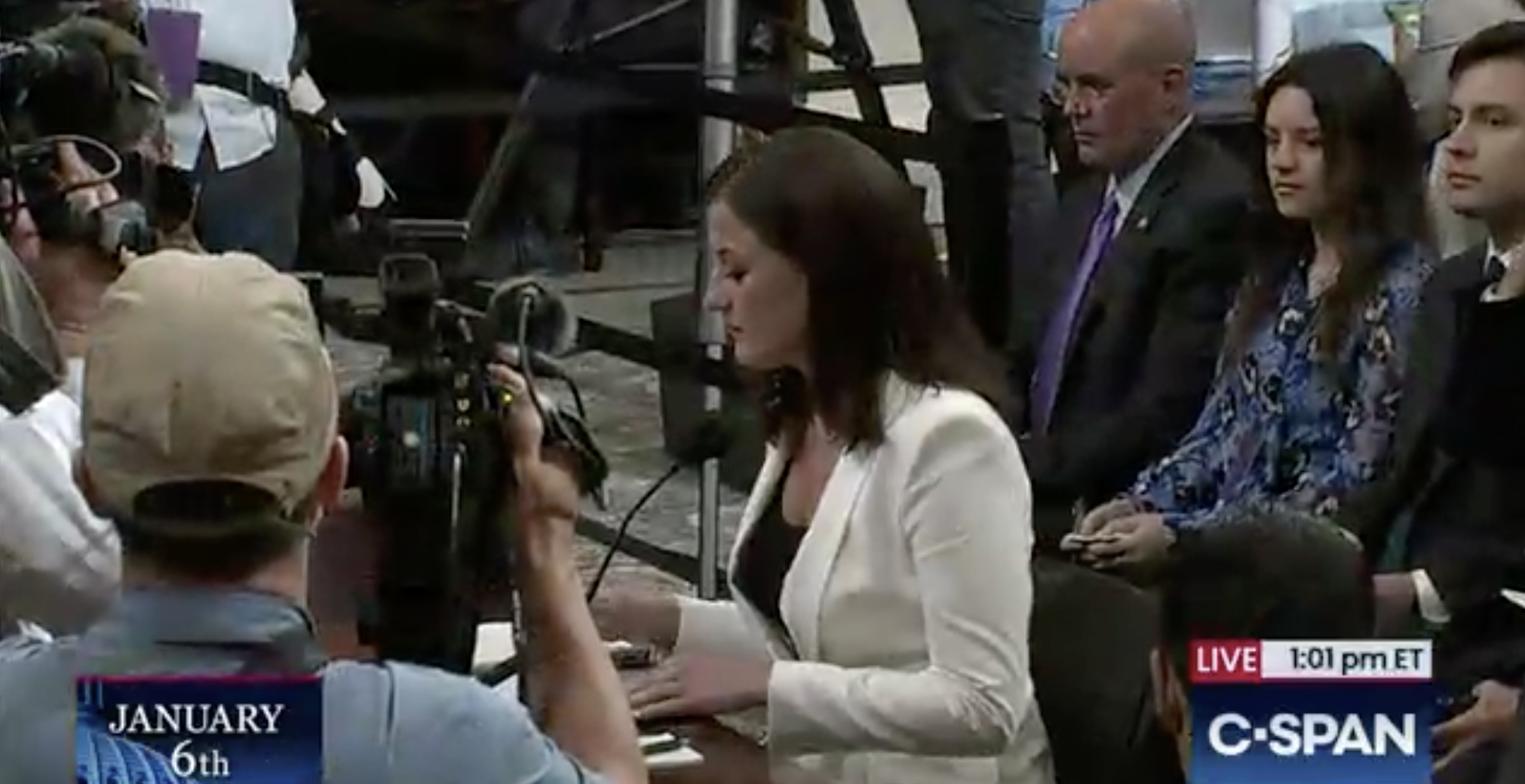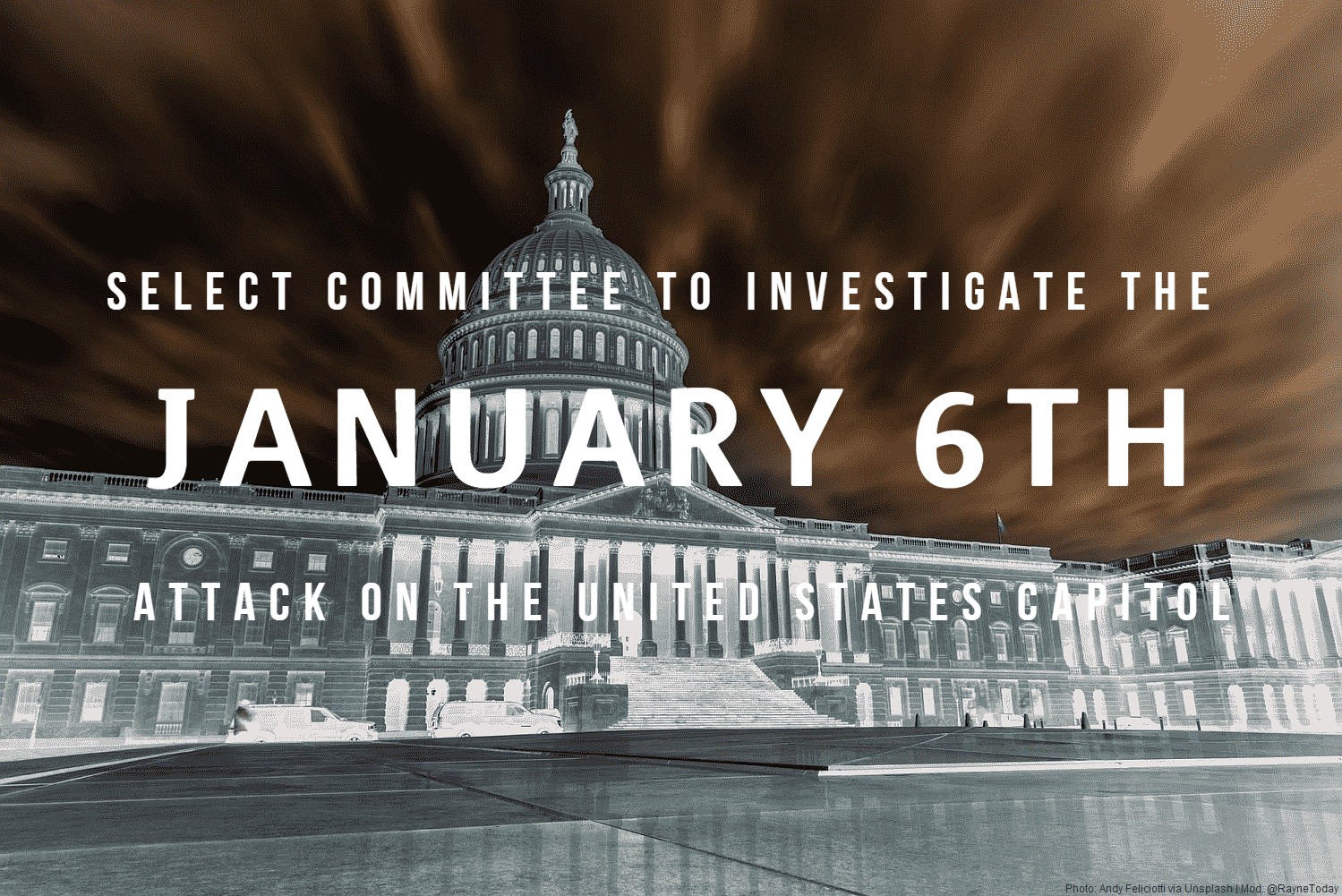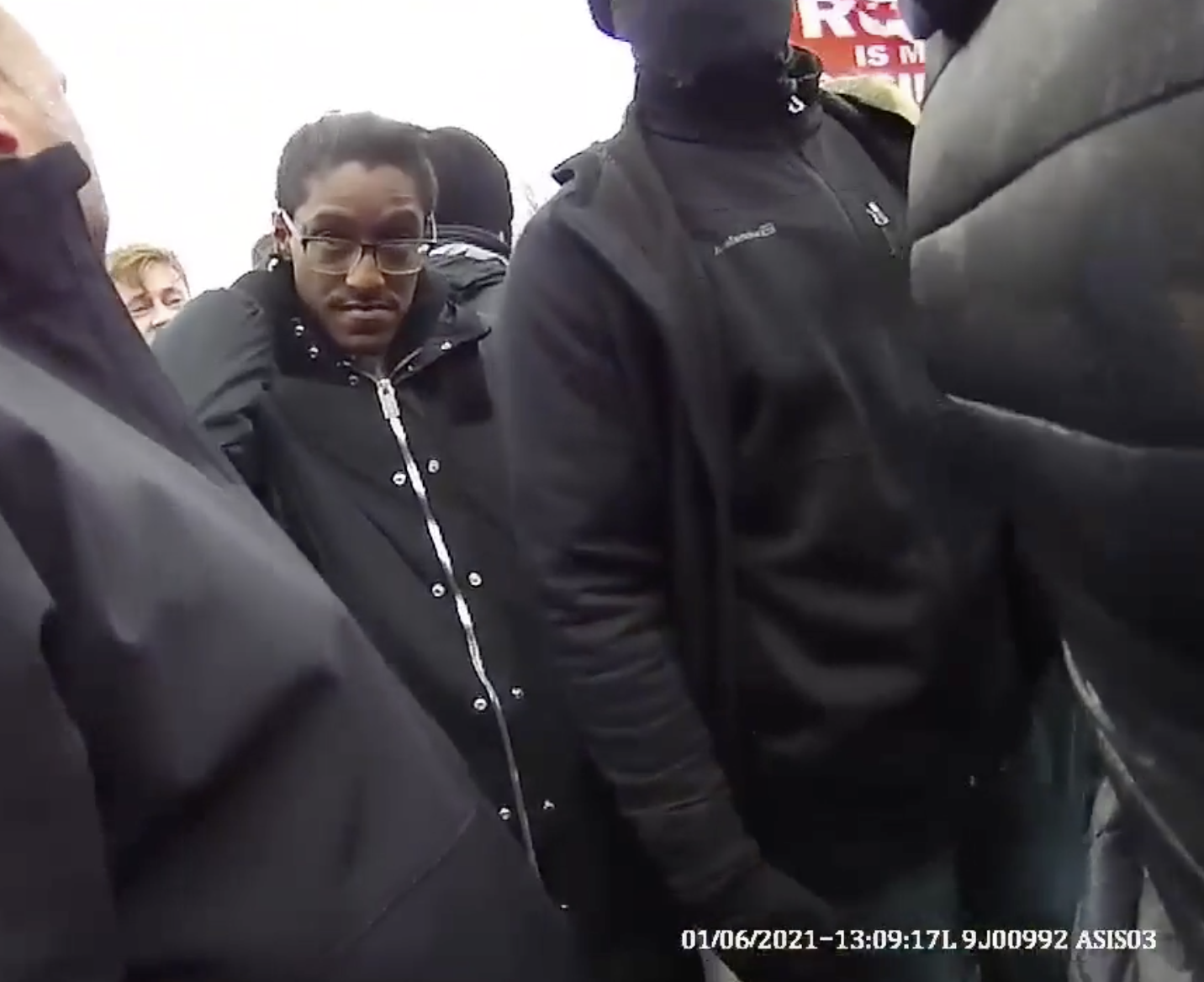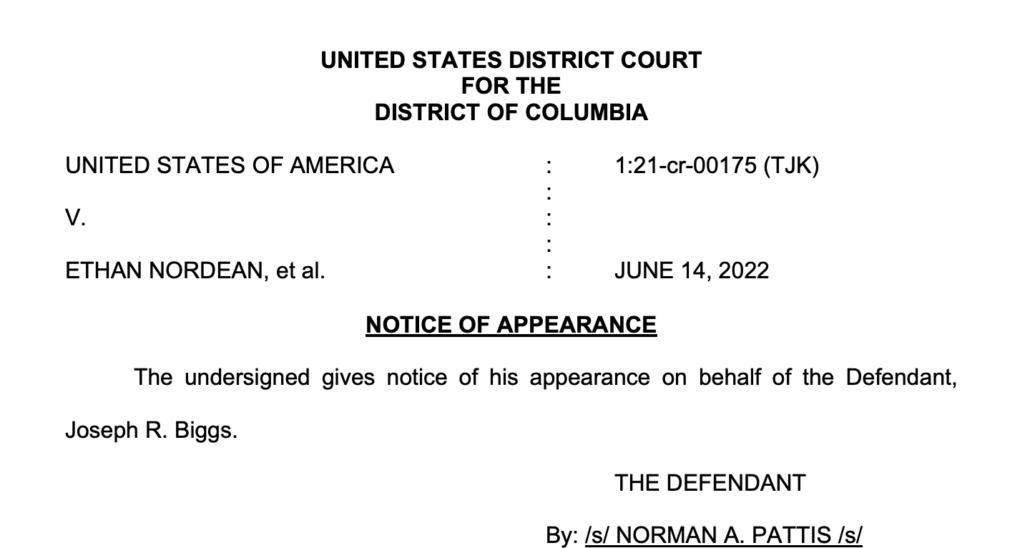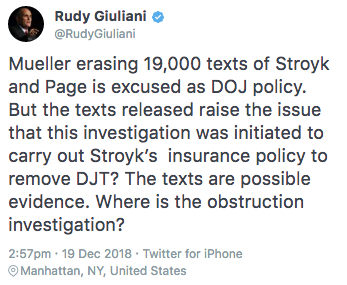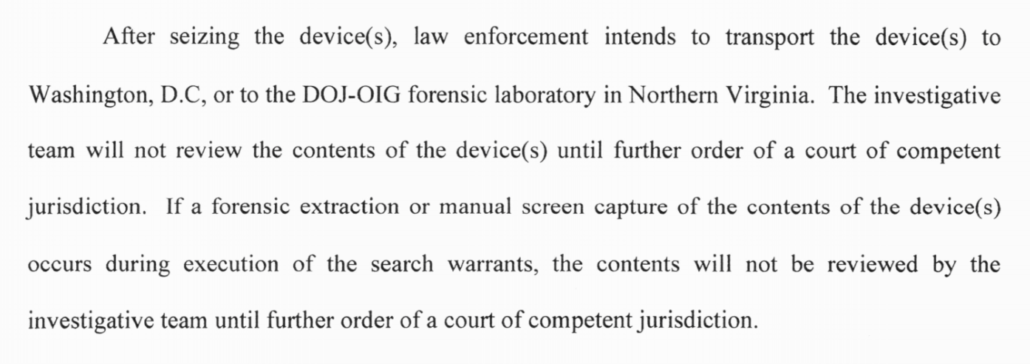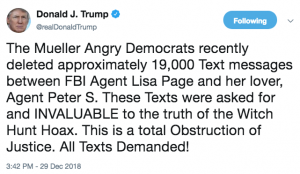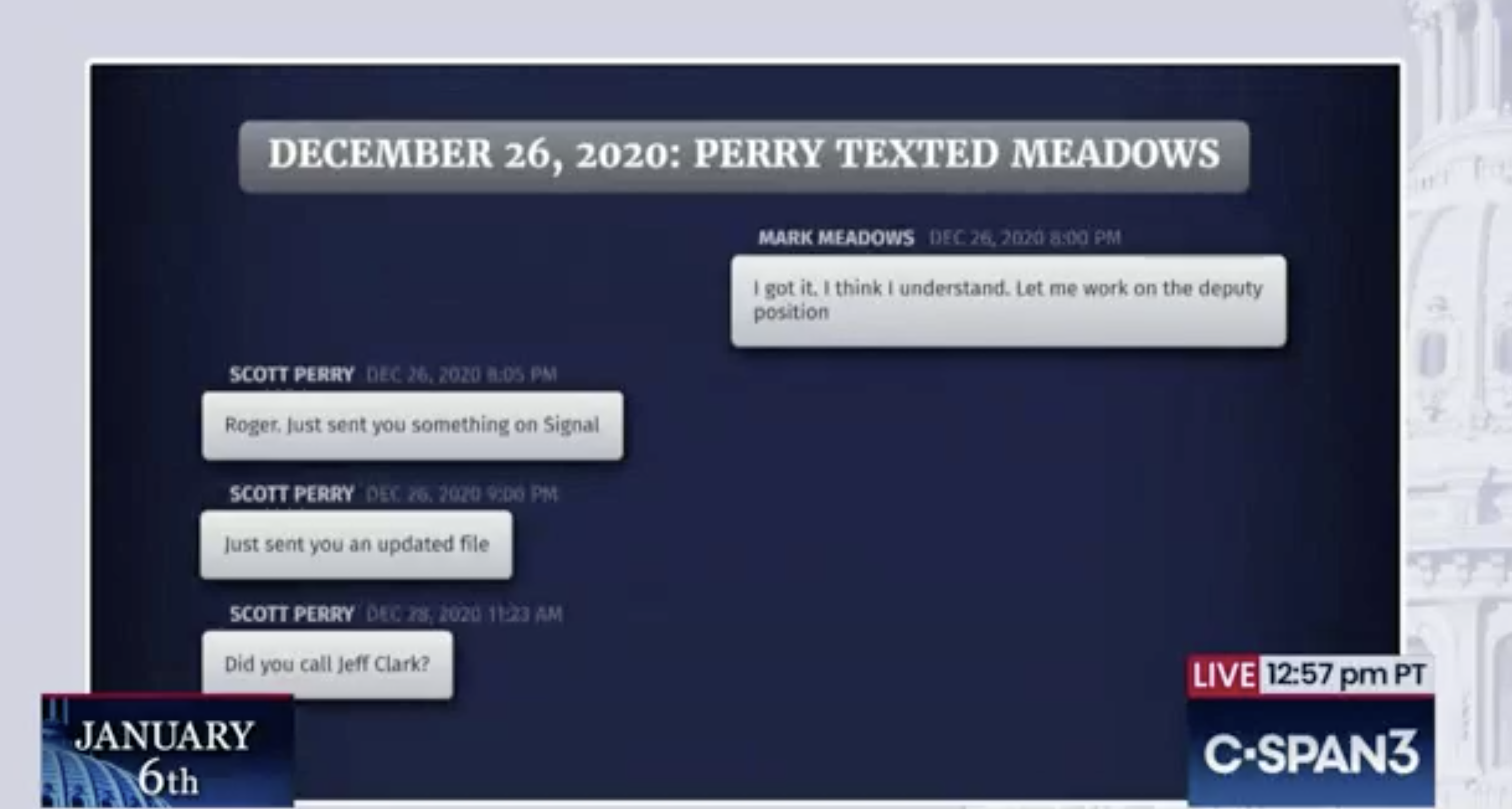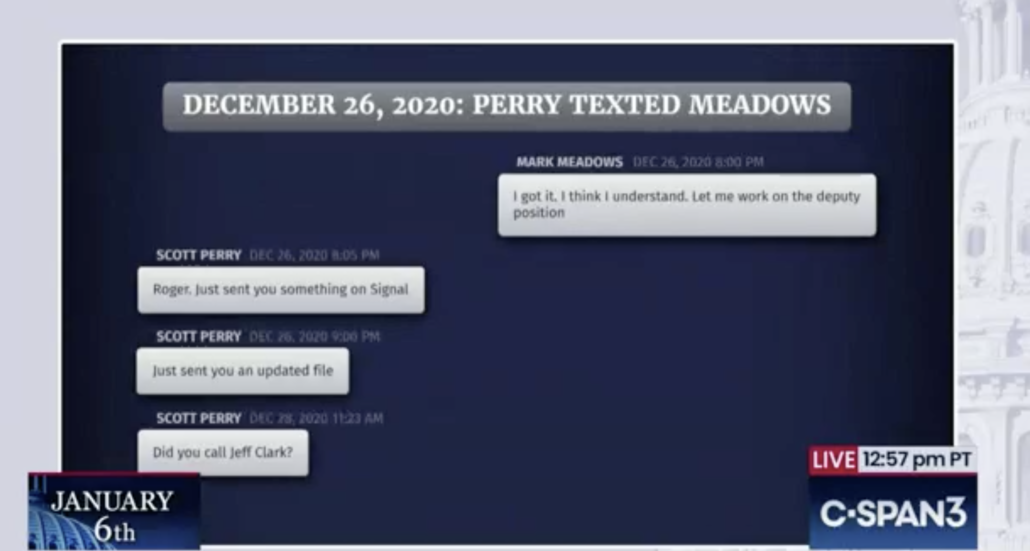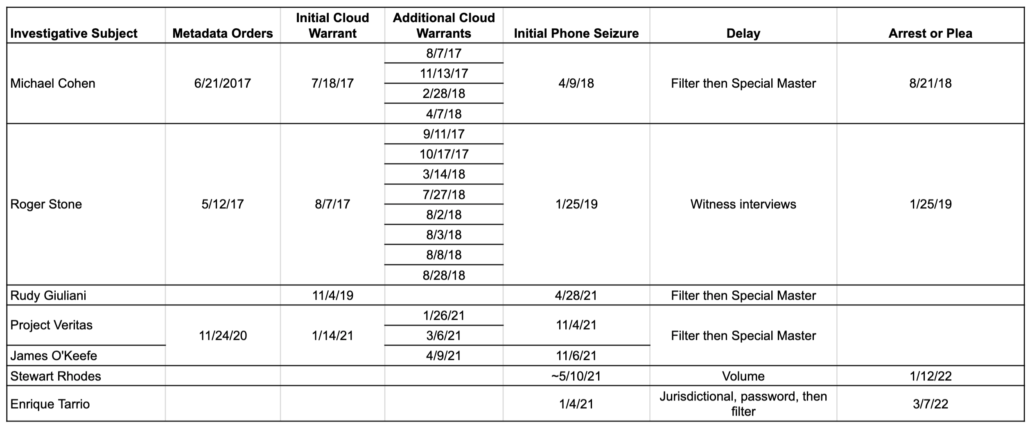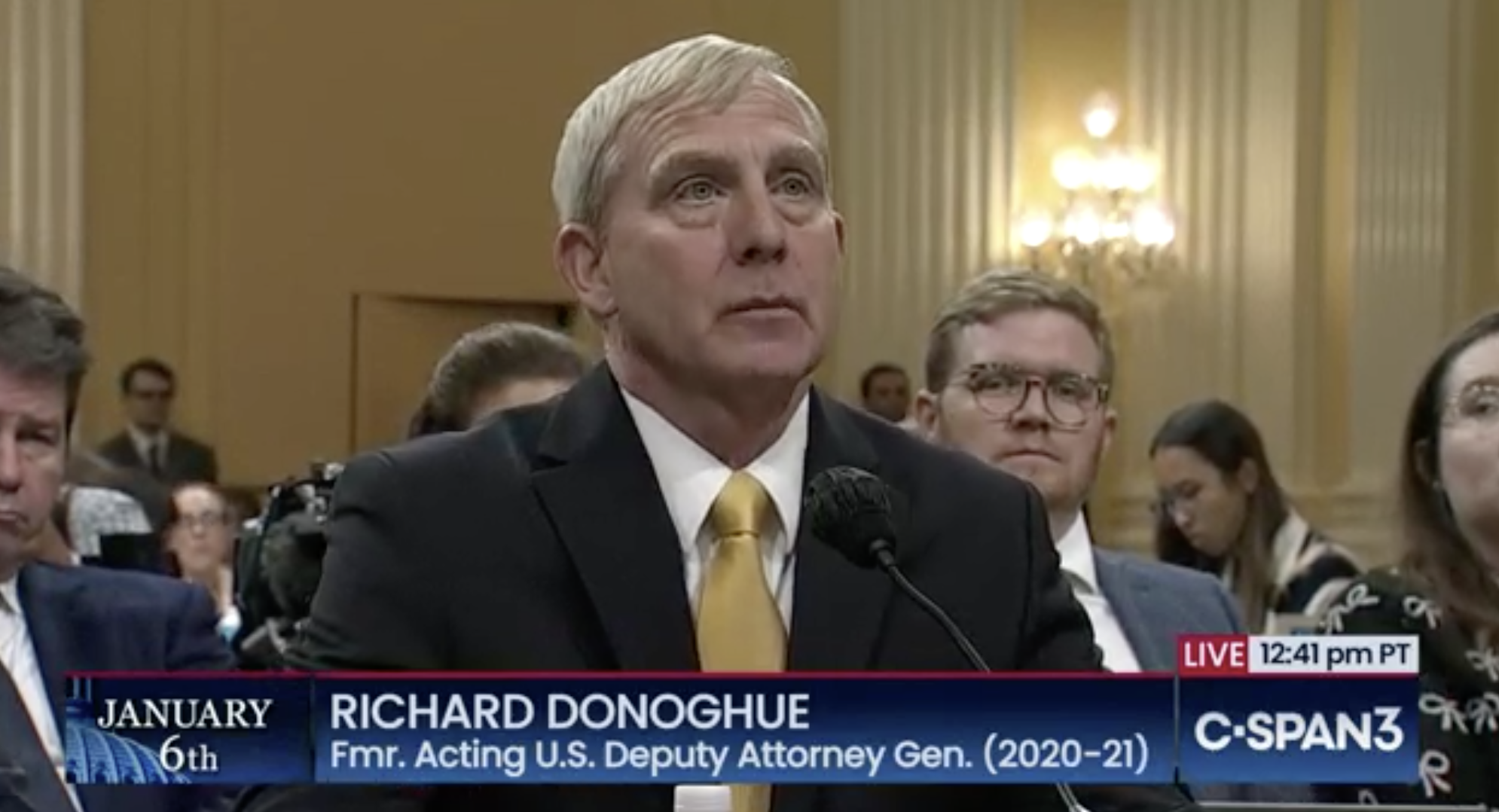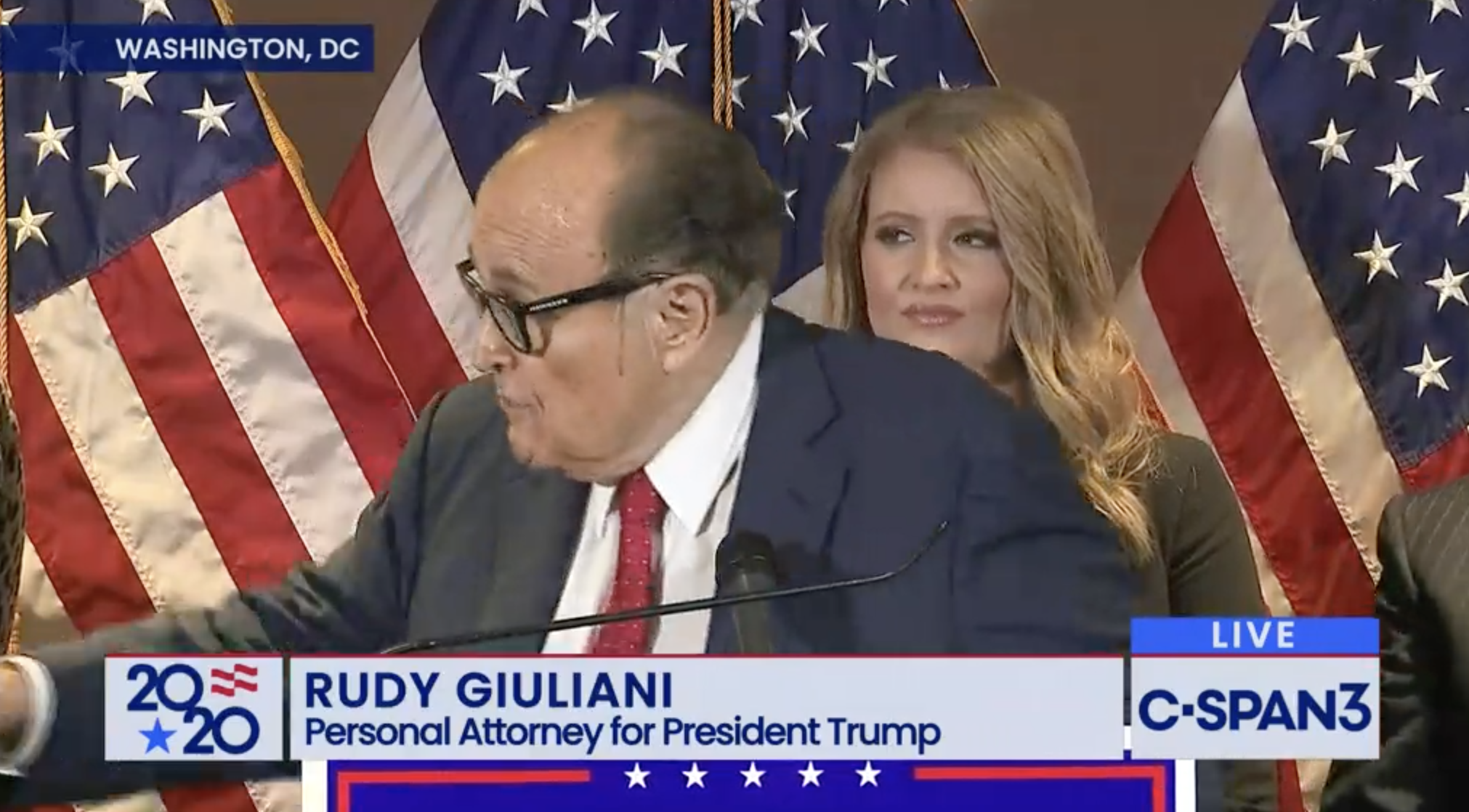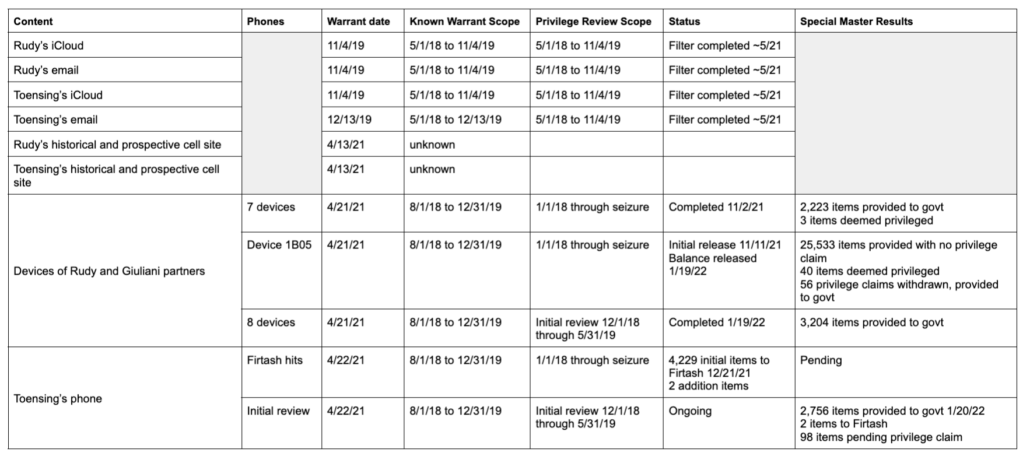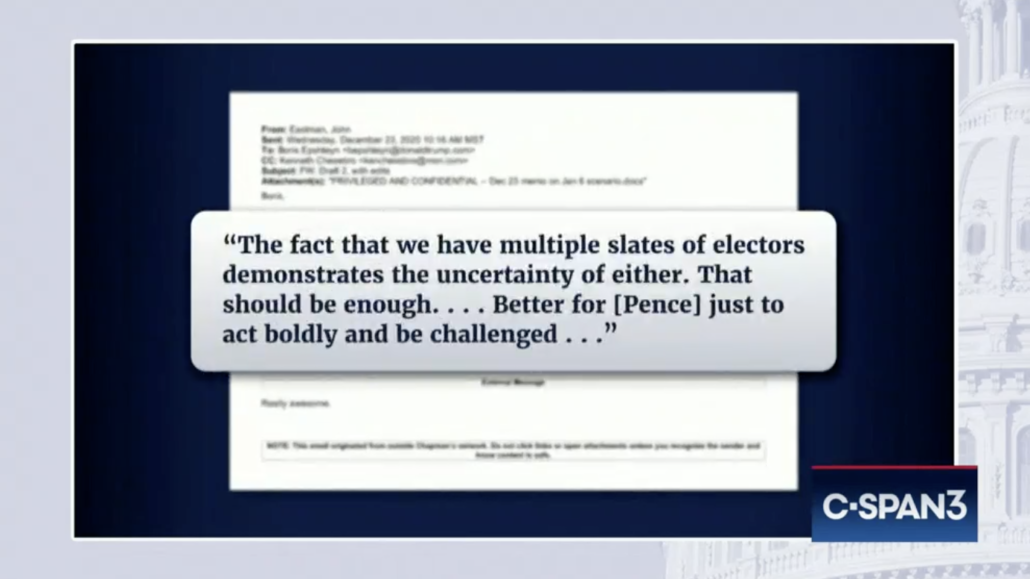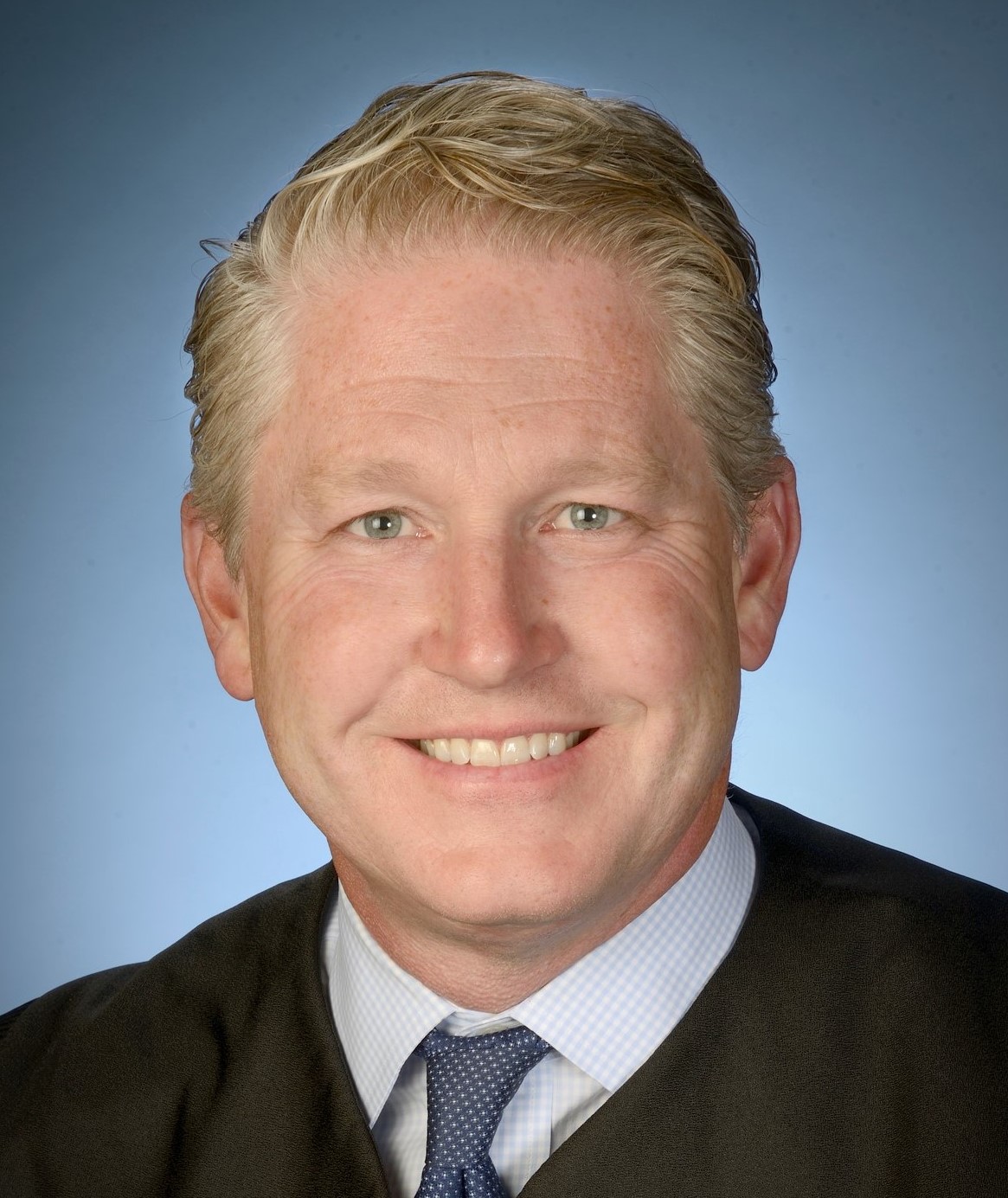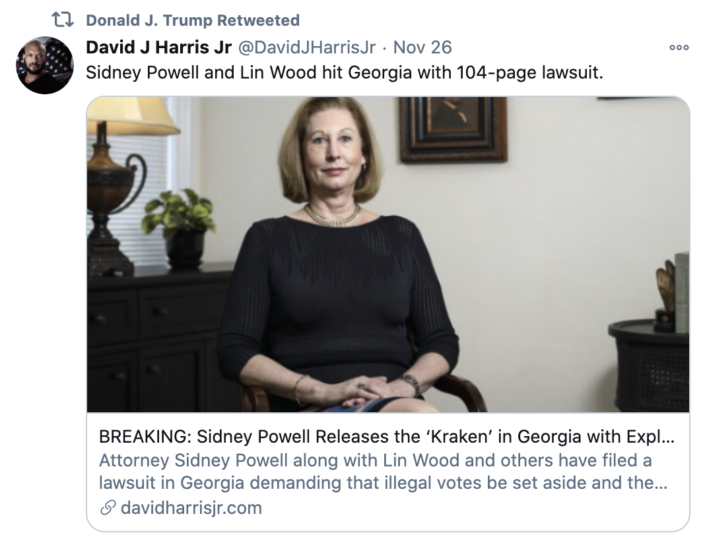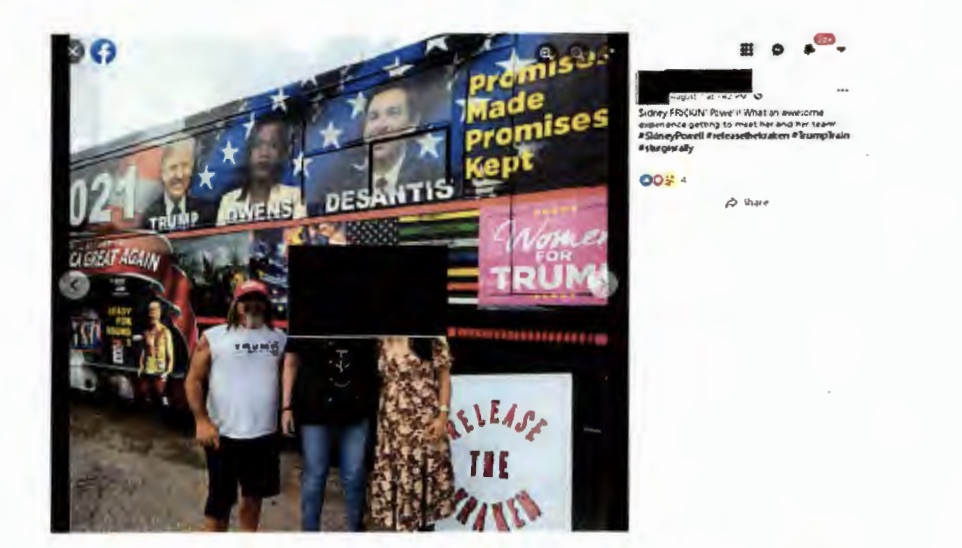Cassidy Hutchinson Proves that Trump Knew the Mob He Sicced on Mike Pence Was Armed
Cassidy Hutchinson just gave absolutely historic testimony implicating Donald Trump, Mark Meadows, and other in January 6. (My live tweet is here.) The woman is incredibly poised and courageous. Her testimony might help to turn the tide against Trumpism in this country.
But her testimony is not enough, yet, to charge Trump in January 6.
Without taking anything away from her dramatic testimony, I’d like to boil down what she said that will be useful in holding Trump accountable.
She only recently committed to delivering this testimony
The Committee announced Hutchinson’s testimony just yesterday, less than 24-hours before her testimony, in spite of the fact that she had already sat for three interviews with the committee, as well as a fourth quite recently. The decision to testify was so recent that members of the Committee had to fly back from their recess to attend.
A key reason she was willing to testify more forthrightly, it seems clear, is she recently (earlier this month) replaced her lawyer from a Trump loyalist to Jody Hunt. Hunt, once Attorney General Jeff Sessions’ Chief of Staff, is still a conservative Republican, but he has spent years holding up principle against Trump.
Particularly given his ties to the department, it’s likely that Hunt will happily guide Hutchinson to share this testimony with DOJ.
For those asking why DOJ didn’t have this testimony earlier, the answer is simple: It has taken a process for Hutchinson to get here.
She is a firsthand witness to important details
A number of things Hutchinson said are damning direct evidence against Trump or others. But it’s important to break that down, because while all of it would be admissible in a conspiracy, not all of it would be admissible against Trump.
- In a conversation on January 2, Giuliani told Hutchinson Trump was going to go to the Capitol; when she asked Meadows about this, he said “things might get real bad on the Sixth.” This implicates both Rudy and Meadows in foreknowledge, though not Trump directly.
- Hutchinson provided evidence that there was intelligence warning of violence (and that John Ratcliffe knew about it); she did not say — though it’s likely — that Meadows and Trump had the same awareness.
- Hutchinson described that there were mentions of militia in advance in discussions implicating Rudy in advance of the insurrection. These would need to be more specific to be worthwhile evidence, but she may be able to point DOJ to where to get more specifics.
- Hutchinson described advance knowledge of Trump supporters bringing weapons both in advance of January 6 and that day. Hutchinson specifically said that Meadows did not act on these warnings. She also made it clear that Deputy Chief of Staff Tony Ornato had spoken to the President about the weapons, but she did not say she knew what happened in that conversation.
- Hutchinson’s testimony on a really critical point includes some ambiguity. In conversations at the White House and then later at the rally, Trump saw the crowd on January 6 and was furious more of his supporters weren’t inside the arena. He was aware many supporters were staying outside the arena because they didn’t want to go through the magnetometers because they had weapons. He asked to ditch the magnetometers because “they weren’t there to hurt him.” This detail is most important because it reflect knowledge on Trump’s part they were armed, before he riled them up and sent them to the Capitol. But in a trial, he would excuse letting them into the rally itself by pointing to his long-standing crowd narcissism, exhibited most famously at his inauguration.
- Some of Hutchinson’s most damning testimony involved his insistence on going to the Capitol. Some of this — the most damning, her description of how he lunged at his Secret Service detail when he refused to take Trump to the Capitol — was second-hand. It would require Ornato or Trump Secret Service Agent in Charge Bobby Engel to present that in a trial. Plus, Trump would offer less incriminating explanations for why he wanted to go to the Capitol. Hutchinson mentioned he wanted to enter the chamber, though, which should be developed more (because he would require an invitation). The Secret Service is now pushing back on this.
- During the rally at the Ellipse, Mark Meadows twice pushed Hutchinson away when she was trying to warn him of violence at the Capitol. This squandered 20-25 minutes in which he might have responded to the initial violence, but since he did nothing for hours anyway, it made little difference. It does, however, reflect Meadows’ own disinterest in protecting the country.
- Hutchinson’s description of efforts to keep belligerent language out of Trump’s speech reflects on Pat Cipollone’s foreknowledge of Trump’s criminal exposure, but probably would require Cipollone’s testimony to be admissible against Trump. Hutchinson described Cipollone’s legal concerns about going to the Capitol, as well, but not necessarily that he explained that to Trump.
- Hutchinson alluded to discussions involving Mark Meadows, Rudy, and Scott Perry about what they would have done if Trump had made it to the Capitol, but she explicitly said she wasn’t sure which of those plans were shared with Trump.
- At Trump’s request, Mark Meadows remained in the loop with Mike Flynn and Roger Stone on January 5 which may help implicate Meadows in the militia planning; Hutchinson discouraged Meadows from attending the War Room at the Willard in person, but he did call in.
- After the attack started Hutchinson described, Meadows telling Cipollone that “he doesn’t want to do anything,” suggesting the President didn’t want to respond at all to the Capitol attack. But that would require testimony from one or both of them to clarify the meaning.
- Perhaps the most damning part of her testimony described that Meadows and Cipollone were in the Oval with Trump discussing the hang Mike Pence chants just before Trump put up the 2:24 tweet claiming Pence hadn’t shown courage. It’s in that conversation where Trump said, “Mike deserves it.” This goes a long way to proving the deliberate effort by Trump to put Pence at more risk. But DOJ would need another witness and/or some corroboration for the timeline to place the “Mike deserves it” comment to just before Trump sent the tweet.
- The Committee presented some of the calls from others, including Ivanka, for Trump to call off the rioters; Hutchinson’s testimony will be one part of the evidence that Trump did nothing during the attack (though Meadows’ comment that “Trump didn’t want to do anything” may be more important to show affirmative refusal, but DOJ would need to get Meadows’ testimony on that point).
- Hutchinson also testified that both Rudy and Meadows wanted a pardon after January 6, which implicates them, but not Trump.
Hutchinson may lead to or force the testimony of others
Whether it happens with the January 6 Committee or DOJ, Hutchinson’s is the kind of testimony that might identify witnesses who would cooperate with DOJ or against whom Hutchinson’s testimony could be used to coerce cooperation.
For example, there’s a greater (Cipollone) or lesser (Kevin McCarthy) that her testimony will embarrass or otherwise convince other witnesses to cooperate with the Committee.
Her testimony identified other White House staffers who were also witnesses to Trump’s demands that the Secret Service ditch the magnetometers or that he go to the Capitol, who would make key witnesses for DOJ.
If Ornato and Trump’s Secret Service detail have been unwilling to testify, this may make it easier to obtain their testimony.
Hutchinson’s testimony tied Rudy to the militias in advance. She also established Rudy’s foreknowledge of a plan to go to the Capitol. These might be really important details implicating Rudy (plus she was witness to some of his earlier efforts to sow the Big Lie.
Her testimony tied Meadows into the plotting at the Willard (on Trump’s orders). And she otherwise depicted Meadows as taking no action because Trump didn’t want to. The case against Meadows would/will need to be far more robust, but having testified against him publicly, she’s likely to be able to offer DOJ far more.
Liz Cheney raised witness tampering in this hearing, without naming names. It’s quite possible Hutchinson has firsthand knowledge of that.
Trump sicced a mob he knew to be armed on his Vice President
To sum up, the most important pieces of testimony show that Trump knew well a significant number of the people at his rally were armed. And after siccing them on his Vice President (and trying to join them), instead of calling them off, he instead further incited violence against Pence, claiming at the moment he did so that they were right to attack Pence.

